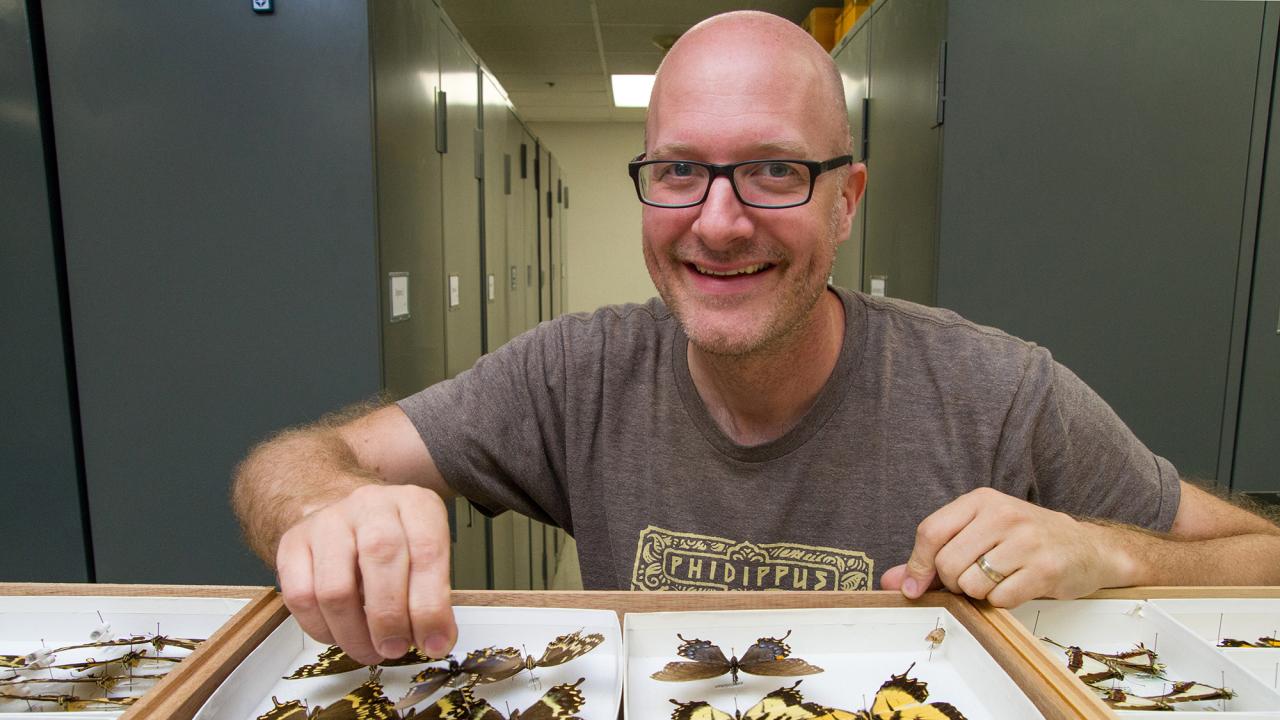Alex Wild, Ph.D. ’05 moved to Davis in 1999 to pursue his passion for entomology.
He earned his undergraduate degree at Bowdoin College and spent a couple years working in South America for the Peace Corps. After discussing entomology with faculty at Stanford, Cornell and the University of Texas at Austin, Wild was encouraged by many to apply to UC Davis. He emailed Professor Phil Ward about joining his lab, spontaneously relocated to Davis with a readjustment allowance from the Peace Corps and eventually secured a place at UC Davis.
“Everyone turned out to be correct. It was, in fact, the right place to be,” Wild said.
Wild’s interest in bugs began in childhood, and through the guidance of ecology professor Nat Wheelwright during his undergraduate years, Wild realized he could study bugs, specifically ants, professionally. In the Peace Corps, he spent a majority of the time teaching beekeeping and decided to go further in the entomology field. “It's just been bugs all the time ever since,” he said.
During his time at UC Davis, Wild played trumpet in a university band and was able to take and teach the ENT 109 field entomology class as a teacher’s assistant. “You go up and live for five weeks up in the Sierras. It was just a tremendous experience,” he said.
Wild also took an interest in insect photography during this time, improving his skills and building a website for his images. “I did not realize that was de facto establishing a business,” he said. He was eventually contacted by textbook and magazine writers for his photos. After earning his Ph.D. at UC Davis, Wild’s business grew until he stopped researching and become a full-time freelance nature photographer.
Wild’s renown in scientific photography led him to the University of Texas in Austin, where he currently works as a curator of entomology. Wild carefully maintains catalogs and loans out the specimens in the collection, some of which date back to the 1870s. He also advises the university’s entomology students and takes occasional trips around the world to discover and examine new species, recently visiting Tennessee to photograph the famous synchronous fireflies.
Wild’s work at the University of Texas is part of a network of natural history collections in universities around the world, and he collaborates with other universities, pooling information about the effect of climate change and land use on certain species. He said he plans to stay in Austin for now and continue studying insects.
“It's really kind of satisfying to feel like I'm producing useful information about the state of our world, even in little buggy increments,” Wild said.
